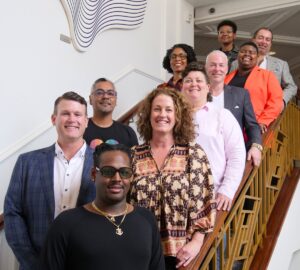We often assume that those who claim to be religious are automatically opposed to marriage equality. As we discuss below this is a mistaken assumption. Indeed, the examples of other countries around the world with devoutly religious populations who have enacted laws enabling marriage equality demonstrate that tolerance and religion go hand in hand, and that marriage equality is in no way hostile to or dilutive of religious freedom.
Bermuda is a very religious place. We all know this. In the 2010 census, 48,813 out of 64,237 people claimed to belong to some religion or religious denomination; that is a whopping 75.9%. Within this constituency of nearly fifty thousand, there are, however, many diverse views on marriage equality. There are those who argue that marriage should be restricted to unions between one man and one woman, without exception. Then there are people with devout religious beliefs that personally, due to their faith do not agree with the concept of marriage equality, but they are able to separate their own personal religious views from infringing on the rights of others and the creation of public policy and laws. Conversely, there are also deeply religious people who actively promote marriage equality.
This divergence of views between people that identify as “belonging to some religion or religious denomination” is one reason why it is hard to tell exactly which way the June referendum on marriage equality will go. In March of this year, an opinion poll revealed a statistically even (taking in account margin of error) break down of views, with 48% saying they did not support marriage equality, 43% saying they did and 7% stating that they did not know. It is important to remember that these results represent a seismic change. In 2010, prompted by a cruise chartered by Rosie O’Donnell, a similar opinion poll indicated that then only 27% of Bermudians were in favour of marriage equality. So this begs the question: why are so many Bermudians changing their mind and, more to the point, how do we understand this change in the context of a community that is deeply religious?
To gain insights, we can look at some of the lessons from other jurisdictions. Last year, Ireland overwhelmingly voted on a referendum on marriage equality, with more than 62% of those participating voting “Yes” for marriage equality. Ireland is a country where 83.2% of the population claims to be Catholic. Yet despite the Catholic Church’s notorious opposition to marriage equality a large percentage of people, many of them Irish Catholics, voted for marriage equality. Why? Ursula Halligan, a prominent Irish TV news presenter when interviewed stated that her support for marriage equality was not a rejection of her faith, but an embrace of her view of who she believes God compels her to be. Similar, an 83 year-old from Ireland said that marriage equality is a challenge for the church, not her faith. Rev. Pádraig Standún, a Catholic priest in Western Ireland said that the people who voted “Yes”, are not less Catholic, but more so, as they are “…showing more love”.
In other countries too, where there is an overwhelming religious population, this trend continues. In Brazil, where Catholics make up over 65% of the population, there is general support for marriage equality, and marriage equality has been legal since 2013. Argentina, has had equal marriage since 2010 and at the time there was support from 60% of the population of a country that is 70% Catholic. Clearly, Catholics in favour of marriage equality numbering in the millions were able to separate their personal faith from the legal rights of those that did not share their faith to enjoy equal rights and live their lives free of discrimination.
So how does this translate to Bermuda? Quite simply: a “Yes” vote in the upcoming referendum is not an attack on your faith. Your right to practise your religion will not be in any way diminished by voting “Yes” on the upcoming referendum. Voting “Yes” means no changes to the existing right of opposite sex couples to get married.
What voting “Yes” means is that you believe in equality. It means you believe in a society where everyone has the equal right and freedom to raise a family, plan for the future and celebrate their relationship with someone whom they want to share their life with. Voting “Yes” does not mean you are compromising your beliefs; it simply means you recognise that everyone has the same right to happiness, regardless of whether they share your faith or not.


